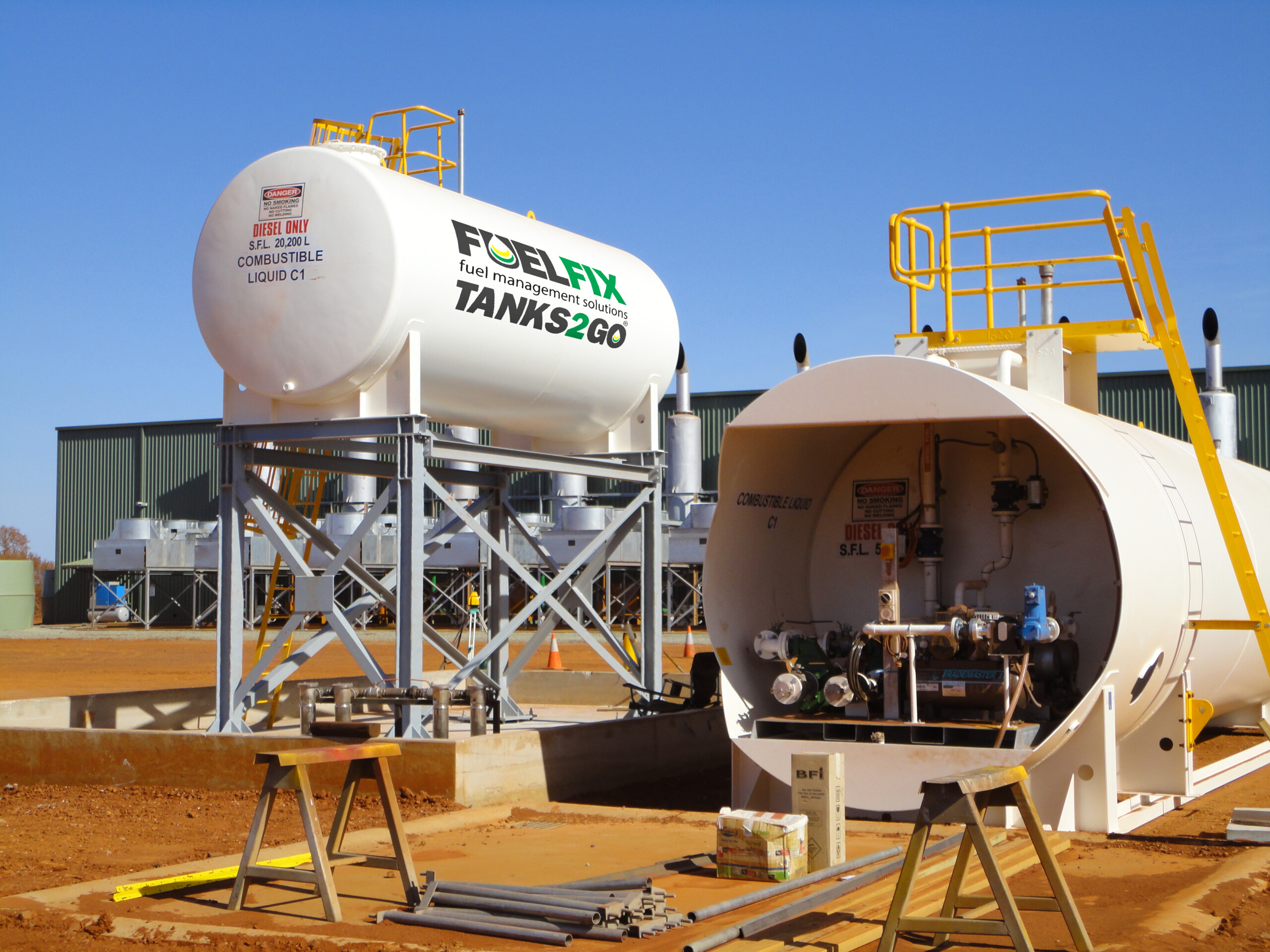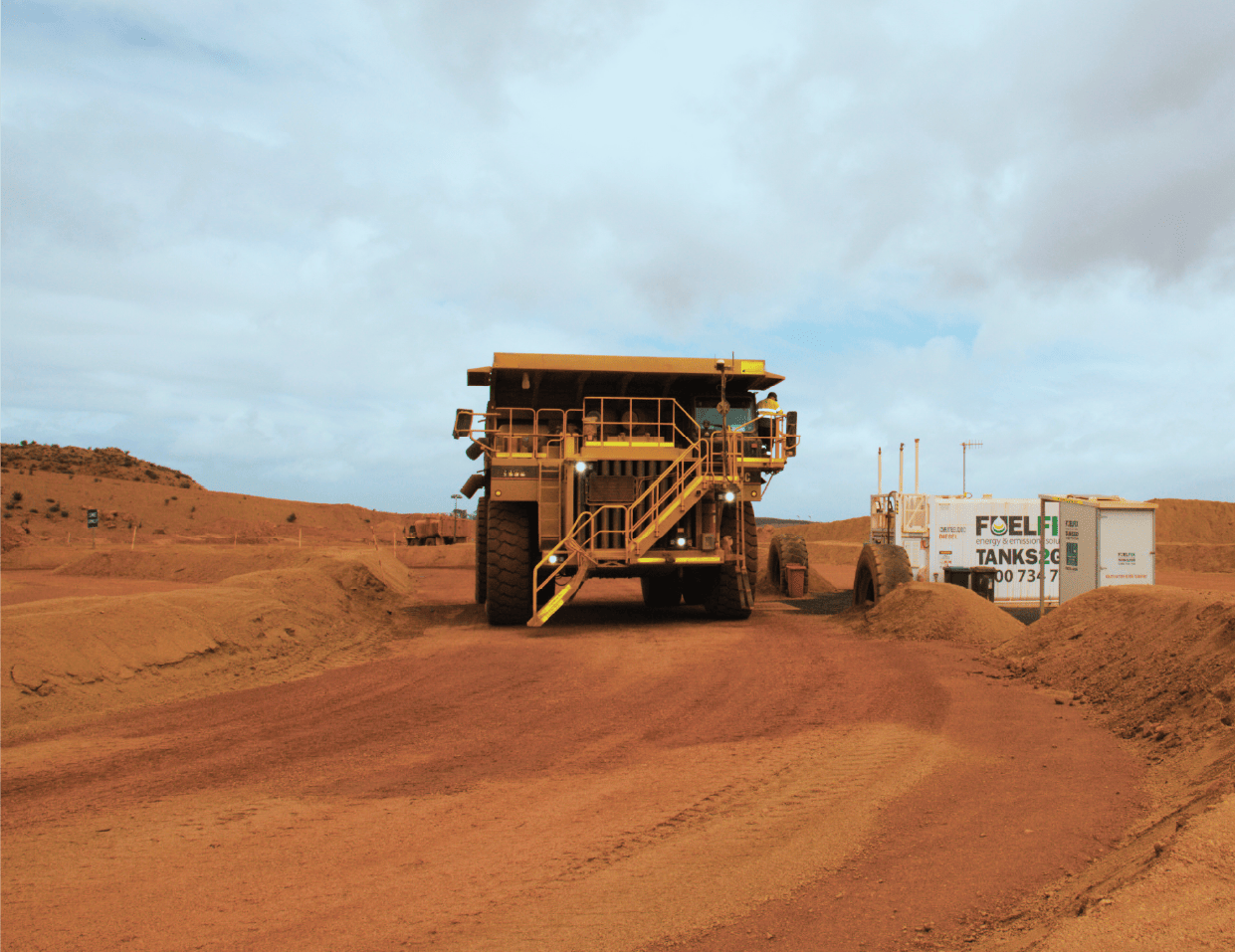
Australia’s size and harsh environment poses unique challenges for local businesses. Key to managing these challenges is the development of a durable and reliable supply chain – especially for sectors of the economy required to operate across more remote areas of the continent such as mining and logistics.
Vital to the continued success of supply chains in these industries is continued and affordable access to necessary fuel. But with fleets numbering in the thousands of vehicles and an immense area to cover, fuel storage becomes a question with serious financial ramifications.
Fuelfix has been a partner to some of the largest companies in these industries for years. We understand the nature of these challenges and the operation risks attached, and we want to help mitigate them. To do so, we’ve partnered with a world-class research team at Curtin University as part of a ground-breaking study. Our hope is that together we’ll be able to help organisations make better, more effective fuel storage solutions, helping their fleets go further.
Understanding the problem space
For companies of the size and geographic distribution of Linfox or Rio Tinto, proper fuel storage is essential to the long-term economic prosperity of the organisation. In both industries, players are faced with a variety of choices relating to fuel storage, ultimately breaking down into a question of centralised vs decentralised acquisition and storage.
In the case of mining organisations, the option is between storing fuel at a central location in a single repository, or in multiple decentralised locations across multiple repositories. Both options provide their own benefits and drawbacks – central storage minimises fuel storage costs and simplifies storage procedures and inventory management but requires all vehicles to return to the central repository for refuelling. Conversely, decentralised storage allows greater flexibility in how and where vehicles refuel but requires more complex administration to ensure that all repositories are adequately supplied with demand peaks accounted for.
Equally, logistics companies choose between administrators purchasing fuel in bulk and storing it centrally at depots, or having drivers individually purchase fuel at service stations as required while on the road. For decision-makers, the benefits and challenges should be readily apparent: bulk storage minimises storage costs and simplifies record keeping while enabling administrators to take advantage of bulk prices for fuel, but at the cost of limiting refuelling ability for currently dispatched vehicles. On-demand purchase partially removes the need for storage, allowing drivers to fill up as required for their role – but at the cost of paying retail prices for fuel and needing to process a large number of expense claims.
Modelling a smarter approach for fuel storage
Fuelfix understands that for most organisations, the most economical option will lie somewhere between both extremes, and will most likely not be immediately clear. To help better determine the most appropriate fuel acquisition/storage strategy for your organisation, Fuelfix has embarked on a process of developing a series of different but related mathematical models. These models will assist in guiding the fuel purchasing and storage decisions of logistics and mining companies, helping them make the best and most cost-effective choice for their organisation.
To assist us in developing these models, Fuelfix has partnered with a cutting-edge research team at Curtin University. Fuelfix will provide the necessary background information, while the Curtin University research team will be responsible for the development and implementation of the mathematical model.
Led by Professor Ryan Loxton, the Curtin University team will take a broad approach to the needs of each industry. Key variables have already been identified for both industries. For mining:
- Time frame (years)
- Hiring cost for fuel storage
- Purchasing cost for fuel storage
- Distance to centralised fuel storage
- Distance to decentralised fuel storage
- Vehicle fuel consumption per kilometre
- Vehicle depreciation per kilometre
- Vehicle maintenance cost per kilometre
- Fuel tax rebates
And for logistics:
- Time frame (years)
- Hiring cost for fuel storage
- Purchasing cost for fuel storage
- Vehicle fuel consumption per kilometre
- Vehicle depreciation per kilometre
- Vehicle maintenance cost per kilometre
- Internal/depot fuel cost
- External fuel cost
- Fuel tax rebates
An industry-leading research team
Professor Loxton brings a depth of experience in this field to the project. The author of more than 60 papers published in international mathematics journals, Professor Loxton has received several accolades for his research in optimisation, scheduling, and mathematical modelling, including the 2019 JH Michell Medal from the Australian Mathematical Society, the 2016 Curtin Commercial Innovation Prize from Curtin University, and the 2014 West Australian Young Scientist of the Year Award from the Government of Western Australia. Additionally, he has been employed by or worked alongside a range of blue-chip companies including Woodside Energy, Vekta Automation, Linkforce, Global Grain Handling Solutions, Fleetcare, and Roy Hill.
Professor Loxton already has significant experience in the field of mathematical modelling of macroeconomic logistical problems. He recently led a team that developed a mathematical model helping Western Australian growers make the most economical storage choice for their harvest, helping them strike the most efficient balance between bulk storage at centralised third-party facilities and on-farm storage using new low-cost sealable tarpaulin storage units. The result was an accurate and intelligent – but easy-to-use – system that helped farmers get every dollar they were owed from their hard work.
Fuelfix looks forward to helping Professor Loxton and his team achieve the same results for Australia’s mining and logistics companies. We anticipate sharing the results of this study with our customers at a later date.
The results of this research will be shared both as a high-level report outlining the Curtin University team’s findings, as well as a robust modelling tool for use by members of the logistics and mining industries. This tool will provide a simple, easy way to adapt the new model to your own business, wrapping it in an approachable and user-friendly interface that any professional can use. Managers in both logistics and mining will be able to input the variables relevant to their business and receive data-driven insights to help guide their fuel storage decisions, helping you build a more intelligent strategy for your organisation.
Please stay in touch to ensure you receive the findings as soon as possible.



